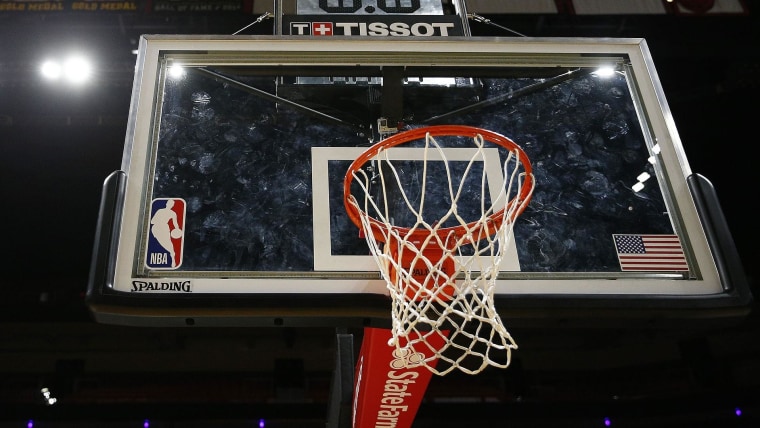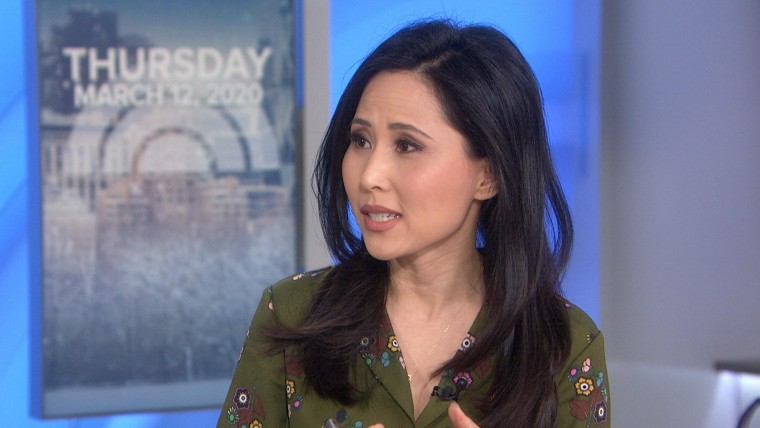Imagine if Pete Alonso smacks a home run in front of 41,922 empty Citi Field seats March 26 when the Mets are scheduled to open the regular season at home against the defending World Series champion Nationals.
One major league executive was asked about that exact scenario Wednesday, and said that all the buzz at spring training sites in Florida and Arizona this week has been team owners, executives and players contemplating — and preparing for — a brave new sports world in the time of the coronavirus.
“But then you’re talking about what’s next, and in a couple of weeks nobody knows what the circumstances will be like at that time,” the executive said, referring to how quickly events are changing and decisions are being made in response to the global pandemic.
“And the real wild card is if a (major league) player gets sick with the coronavirus, does only the player get isolated? Or the rest of the team, too?” the executive asked.
The baseball executive’s remarks came before the NBA announced it would suspend its season and that a Utah Jazz player had tested positive.
Mark Emmert, the NCAA president, announced Wednesday that the upcoming men’s and women’s basketball tournament games — college sports’ premier annual event — would be played before no fans.
Major League Baseball had already joined the NBA, NHL and MLS earlier this week in establishing a policy of no access to clubhouses and locker rooms for media and non-essential employees. Will the cancellation or suspension of the MLB 2020 season be next?
Let our news meet your inbox. The news and stories that matters, delivered weekday mornings.
“I think the NBA made the right decision,” Dallas Mavericks owner Mark Cuban said Wednesday night after the NBA made its announcement on halting play. “It’s stunning. But we are where we are. We have to be smart in how we respond. This isn’t about basketball. This is a global pandemic where people’s lives are at stake.”
When asked Thursday morning if he would advocate that MLB follow suit and suspend at least the start of the 2020 regular season, Cuban told NBC News: “I would advocate that we hire the best epidemiologist available to work as a consultant and any other related experts available to work with (government) agencies and put together a plan. I would push to make sure we are self-aware enough to know what we don’t know.”
San Francisco Giants player Evan Longoria is no stranger to playing in a ghost town-like atmosphere, although his former club, the Tampa Bay Rays, struggled with attendance for reasons other than the fallout of a global health crisis.
“I mean, I’ve played in some nearly empty ballparks,” Longoria said, according to the San Francisco Chronicle. “It’s not that I can’t imagine it. It’s not fun.”
One major league team has already had its schedule altered as a result of the coronavirus. The Seattle Mariners will not play games at home stadium T-Mobile Park in March. Washington Gov. Jay Inslee announced a ban on gatherings of 250 or more people in three Washington state counties through the end of this month, including King County, where the Mariners play.
And the California Department of Health issued a similar ban of large gatherings in that state, which could affect home openers played by the Oakland A’s, San Diego Padres and the Los Angeles Dodgers.
The players’ union said, “Players want to compete and provide entertainment to fans. The Association’s focus will remain finding ways to do so in an environment that protects not just players’ personal health and safety, but also the health and safety of fans, umpires, ballpark employees, club employees and everyone in the baseball family.”
If the 2020 baseball season begins on schedule March 26, but teams have to play to empty stadiums, there are financial and economic repercussions to consider as well. Sports economist and Smith College professor Andrew Zimbalist said, at least initially, MLB owners would see a minimal economic setback if fans were not permitted to attend games.
“I would suspect overall — if we’re talking about a month or two months of either games being played without people in the stands — the impact on team revenue would be small, a couple of percentage points,” said Zimbalist. “Teams get about 25% of their revenue from selling seats, and they get maybe another 10% from selling concessions and memorabilia. The problem is you’re paying the players their full salaries and you’re getting roughly half the revenue that you’d get otherwise. You’re getting some revenue, but it’s still a very undesirable situation.”
“It would be another matter altogether if you canceled the games,” Zimbalist added.
Marc Ganis, the president of Chicago-based Sportscorp Ltd., a sports marketing firm, said there is a reason why sports leagues like Major League Baseball require that owners have strong balance sheets.
“When there are unexpected events like a coronavirus pandemic, (owners) can handle these kinds of unexpected financial problems more efficiently,” said Ganis, who has consulted with MLB teams. “In Major League Baseball, the loss of revenue will not be partially made up by lowering the cost of player salaries. In the NBA and NHL, the players receive roughly 50% of the revenue, so if the revenues go down, the players will take a reduction. Baseball does not have that kind of arrangement with its Players Association. The owners in baseball will bear the brunt of the losses themselves.”
Ganis said it’s also possible that crafty legal minds may seize on an opportunity to exploit the health crisis.
“Is there legal liability to continue the events? Will crafty lawyers argue that somebody may have taken the subway and contracted the coronavirus by going to a Knicks game? How does that get proven? Those lawsuits will come,” said Ganis. “The argument would be that someone contracted the virus in a public event. That’s almost impossible to prove, but it doesn’t mean you can’t get a jury to agree with a sympathetic client.
“We’re only at the beginning of this.”













